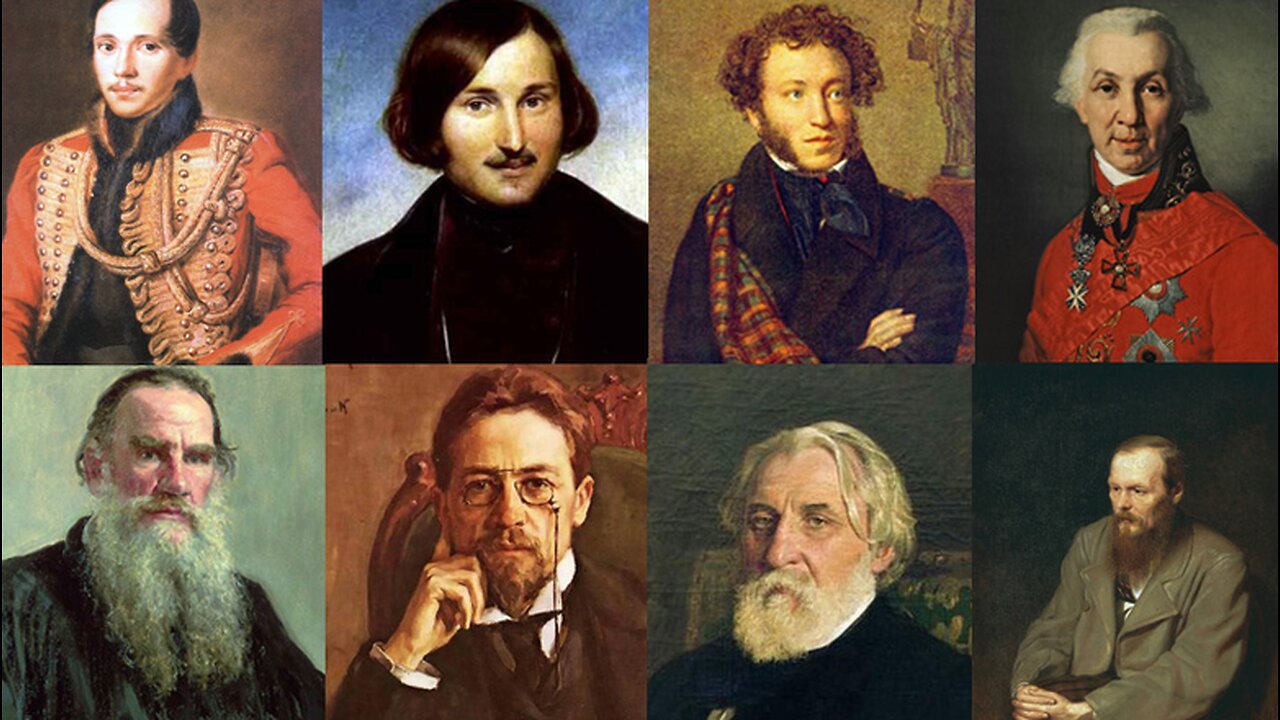Premium Only Content

Classics of Russian Literature | Near Mortality, Prison, and an Underground (Lecture 11)
Lecture 11: Shortly after Dostoevsky’s auspicious beginnings, Belinsky hurt the young man deeply by sharply rejecting The Double. The author then drifted into a mildly revolutionary circle of moderate liberals. In 1848, early in the morning, he was awakened by the tsar’s police and placed under arrest. In December of 1849, he was led, together with his fellow liberals, out into the bitter St. Petersburg cold, under sentence of execution by firing squad. At the very last second, the soldiers lowered their rifles, and the condemned men heard a prearranged tsarist stay of execution. The young writer served four years in chains, working in a Siberian prison camp. This experience received much literary treatment in his subsequent work. After marrying a widow in Siberia, he returned to European Russia in 1859. The marriage was an uneasy one, and his first wife died. In 1864, with her corpse, according to Russian custom, still on the table, he wrote one of his most disturbing, moving, and penetrating works: a novella, Notes from the Underground. If you read it and then sleep normally for the next week, you have not read it properly. The Underground Man, a compendium of everything deep within ourselves that we try to hide but know all too well, makes an impassioned and embittered cry for human freedom but without human joy and love.
Suggested Reading:
Fedor Dostoevsky, Notes from the Underground, Three Short Novels of Dostoevsky, translated by Constance Garnett and revised by Avrahm Yarmolinsky.
Robert L. Jackson, The Art of Dostoevsky.
Vladimir Nabokov, Lectures on Russian Literature; a dissenting, critical view of Dostoevsky.
-
 30:05
30:05
The Great Courses
1 month agoDecisive Battles of World History | 1942 Stalingrad - Hitler's Ambitions Crushed (Lecture 35)
160 -
 LIVE
LIVE
Jeff Ahern
46 minutes agoNever Woke Wednesday with Jeff Ahern
97 watching -
 6:09
6:09
Rena Malik, M.D.
6 hours ago $0.01 earnedKidney Cancer Symptoms, Diagnosis and Treatment
881 -
 27:05
27:05
IsaacButterfield
10 hours ago $0.19 earnedThis Vegan Comedian Absolutely Lost Her Mind
9673 -
 1:43:29
1:43:29
Tucker Carlson
5 hours agoHow Wall Street & the FBI Colluded to Destroy Trevor Milton After His Tech Threatened Big Oil
54.7K38 -
 1:03:40
1:03:40
Sean Unpaved
2 hours agoBrown's QB Battle, Indy's Offense, & RedZone's Hot Sale
22.7K -
 1:43:31
1:43:31
The White House
3 hours agoPress Secretary Karoline Leavitt Briefs Members of the Media, July 23, 2025
21.4K13 -
 LIVE
LIVE
RalliedLIVE
2 hours ago $0.37 earned10 WINS WITH THE SHOTTY BOYS
117 watching -
 1:05:24
1:05:24
Timcast
3 hours agoTulsi Drops PROOF Obama Ordered COUP Against Trump, Obama FURIOUS
155K105 -
 2:11:26
2:11:26
Steven Crowder
6 hours ago🔴BREAKING: Tulsi Drops Major Receipts Proving Obama Treason over Trump Russia Hoax
449K389